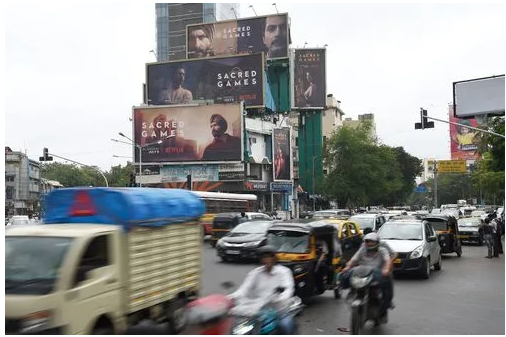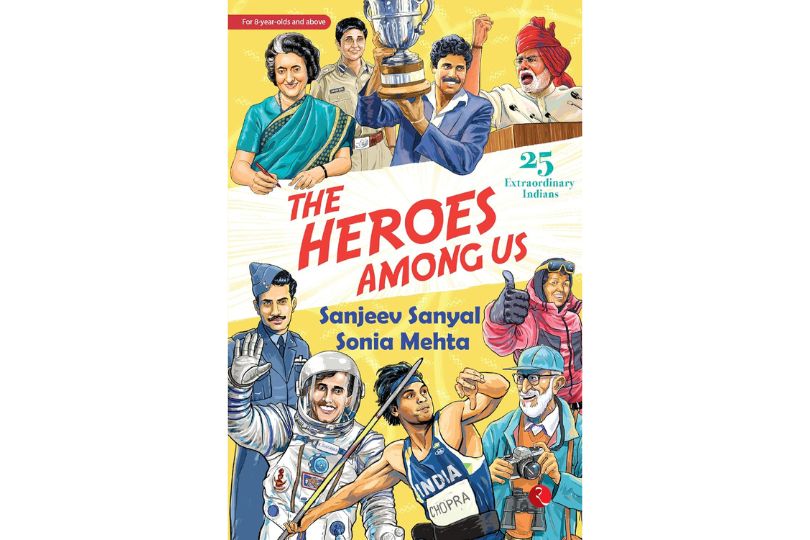Netflix and Amazon gave daring Indian filmmakers hope. Now that's turning to fear
Netflix and Amazon gave daring Indian filmmakers hope. Now that's turning to fearon Mar 30, 2021

Screenwriter and director Ruchi Narain struggled for decades to find steady work in the Indian film industry.
Even with two major, critically acclaimed films under her belt — Kal: Yesterday and Tomorrow, a thriller she wrote and directed, and Hazaaron Khwaishein Aisi, a political drama that won Bollywood's equivalent of an Academy Award — the work just wouldn't come.
I struggled a lot because I am an outsider and a woman, Narain told CNN Business. I was meeting people every week but it all went nowhere. That changed when Netflix arrived in India in 2016.
Since then, the Mumbai-based filmmaker says she has been inundated with work. Her film Guilty — a social issues drama about a rape investigation — was released by the streaming giant in 2020. In the same year, Disney+ Hotstar released her 8-part comedy series Hundred.
Now, increasing government scrutiny of these more provocative projects and other groundbreaking stories is worrying Narain and many other creators in Mumbai, the home of India's film industry.
Original shows on Amazon Prime and Netflix have lately drawn ire from Indian politicians and regular citizens who consider these films and TV shows insensitive to cultural and religious beliefs.
Police complaints have also piled up against creators and company executives, and some of the offenses they have been accused of — including committing deliberate or malicious acts, intended to outrage religious feelings — carry prison terms of up to three years, a fine, or both. And, in recent months, Prime Minister Narendra Modi's government has announced new rules and guidelines for streaming services, though no explicit bans on particular themes.
India's creative community now fears that streaming services may buckle under the pressure, and refrain from touching stories that are even remotely controversial. It's a troubling sign for an industry that had just begun experimenting with new forms of storytelling and producing shows capable of worldwide appeal. Just last year, Delhi Crime, a Netflix drama series based on the real rape and murder of a 23-year-old student in India's capital, won an international Emmy.
Start of a new era
The arrival of Amazon and Netflix in India has been a boon to directors and writers like Narain, who had long languished on the fringes of Bollywood — an industry often accused of nepotism. Several filmmakers told CNN Business they thought the international streaming services introduced a degree of professionalism.
I co-directed a film called 'House Arrest,' which was released on Netflix in 2019, and everyone on set was thrilled just because they were getting paid on time, said Samit Basu, novelist and filmmaker. He added that the culture changed to one where rigorous research and development were commonplace.
A lot of book rights were auctioned and writers' rooms started happening, Basu added. Earlier, people in the film industry hardly ever read books.
More importantly, these companies made it possible for storytellers to explore subjects that had previously been untouched.
Bollywood films are hamstrung by the Central Board of Film Certification, which forces filmmakers to remove everything from kisses and swear words to shots of drug abuse — once even from a film about drug abuse. Indian TV, which is also regulated by the government, is dominated by often regressive stories about housewives and mothers-in-law.
Streaming content broke that mold because it was, until recently, unregulated by the government. Sacred Games, Netflix's first original series in the country, shocked Indian viewers by casting well-known actors in a show that liberally made use of abusive language, violence and nudity. The program was compared to Narcos, Netflix's hit American drama about Colombian cocaine kingpin Pablo Escobar.
Amazon's first series in the country, meanwhile, was Inside Edge — a show about the dark underbelly of cricket, a sport that is worshipped in India. Both Inside Edge and Sacred Games were nominated for International Emmy awards.
Several other shows on the platforms have also taken an unflinching look at subjects ranging from politics to female sexuality, which Bollywood and Indian TV have typically shied away from. I am glad I did my film for Netflix because they did not dilute anything, said Narain, referring to her project Guilty.
When a kiss offends
Politically-fueled uproar over shows on these international video platforms isn't new. Sacred Games, which was released in 2018, managed to offend lawmakers from Modi's Bharatiya Janata Party (BJP) and the opposition Congress Party. In 2019, a politician from the BJP filed a police complaint against the creator of the show for a scene which disrespects Sikh religious symbol Kada.
But lately, the political and public outrage has reached a crescendo.
Netflix faced boycott calls in November over A Suitable Boy, an adaptation of the award-winning novel of the same name by author Vikram Seth. Some viewers and BJP politicians were angered by a scene that depicts a Hindu man and a Muslim woman kissing in a temple, which led to complaints against Netflix executives. The company did not respond to CNN Business's request for an update on these complaints.
In January, Amazon's political drama Tandav — which has been likened to the Netflix series House of Cards — faced a backlash from politicians who said they complained to the police about the company and the show's creators for depicting Hindu Gods in a derogatory way. Aparna Purohit, the Head of India Originals at Amazon Prime Video, was questioned by police for several hours.
Both Amazon and the show's creators issued an apology. We respect our viewers' diverse beliefs and apologize unconditionally, Amazon said in a statement.
That same month, an Indian journalist filed a police complaint against Amazon's crime series Mirzapur for showing the city of Mirzapur in a bad light, according to media reports. And this month, the National Commission for the Protection of Child Rights asked Netflix to stop streaming Bombay Begums, a drama about five ambitious women, because of its inappropriate portrayal of children, who were shown sniffing cocaine.
The government has also taken official action to rein in streaming services and the content they provide. Last November, the Information and Broadcasting Ministry brought the previously unregulated services within its scope.
Three months later, the government announced new rules for online content, including a requirement for video platforms to classify their content into age-based categories. They also have to appoint a grievance redressal officer in India who has to address every complaint made against the company within 15 days.
While activists have criticized these rules, the government said the video streaming services must be responsible and accountable for their content.
India is tolerant and will remain tolerant, India's technology minister Ravi Shankar Prasad said on Thursday. But the limits of tolerance and standards of tolerance should not be judged on the creating freedom or abuse of a particular producer of an OTT platform.
The new rules do not explicitly ban any type of content — but the vague scope of the regulations is also exactly why filmmakers who spoke to CNN Business were troubled. A wide range of topics have already been targeted with complaints and outrage, leaving creators second-guessing and self-censoring.
In India, anyone can have a problem with anything. In India, people confuse what a character is saying with what the writer believes, said Sumit Purohit, who wrote for Inside Edge and Scam 1992, a web series on Sony's streaming service SonyLiv. How can you make a series like the 'Mindhunter' here? he asked, referring to a Netflix show about serial killers.
Purohit also described the impact of self-censorship on a writer, saying that it makes you angry, frustrated, because that is not how any art is created.
The backlash from all sides — politicians, journalists, national agencies and even regular citizens — is hard for American services to fight in India, a key overseas market, as they are wary of getting on the wrong side of the government.
Netflix CEO Reed Hastings said in 2018 his next 100 million users would come from India. In Dec 2019, he said his company would spend 30 billion rupees ($413 million) on original content over the next two years in India. And, Amazon's Jeff Bezos has said that it [Prime Video] is doing well everywhere but there's nowhere it is doing better than in India.
A chilling effect
There are already some signs that the industry might be regressing. Earlier this month, Reuters reported, citing unnamed sources, that companies like Amazon's Prime Video and Netflix are inspecting planned shows and scripts, with some even deleting scenes that could be controversial.
A few days later, the Indian financial newspaper Mint reported, citing anonymous sources, that Amazon had canceled the second season of the crime series Paatal Lok, which was praised for its portrayal of corruption and caste discrimination.
Amazon and Netflix declined to comment on the reports.
Nothing that has politics in it is being touched [commissioned] right now, said Josy Joseph, an investigative journalist whose media platform is collaborating with the creator of Sacred Games to make a series about Tihar Jail, India's largest prison.
There is a massive depression that has set into the creative minds of Mumbai, he said. They are scared and writers are winding down to mediocrity. They are going back to telling saas-bahu stories or conservative romance. (Saas-bahu means mother-in-law and daughter-in-law in Hindi.)
While production isn't slowing down — Netflix has announced 40 new shows and movies from India — Basu worries that production houses in the future may go for content that is unambiguously safe and assumes that the audience's intelligence is zero.
Just weeks after Prime Video executive Purohit was questioned by police, the platform announced it would produce its first film in Bollywood, the stronghold of traditional Indian movie making. Ram Setu will highlight our Indian heritage, said Vijay Subramanium, the head of content at Amazon Prime Video India, in a statement.
Some filmmakers are less pessimistic about their creative freedom.
Karan Anshuman, one of the creators of Mirzapur and Inside Edge, said he felt it was too early to react to the heightened scrutiny, adding that he would rather wait and watch.
But film writer Arpita Chatterjee, said it is too late to rein in the Indian filmmaking community now.
We can't just go back 20 years, Chatterjee said. The world is at a different place and storytellers are at a different place. You can't just put the genie back in the bottle.
Author
Authors
Frontlist
Frontlist Article
Frontlist Book News
Frontlist Latest
Frontlist Latest news



.jpg)






.jpg)
.png)
.jpg)

.jpg)
.jpg)
.jpg)
.jpg)










Sorry! No comment found for this post.